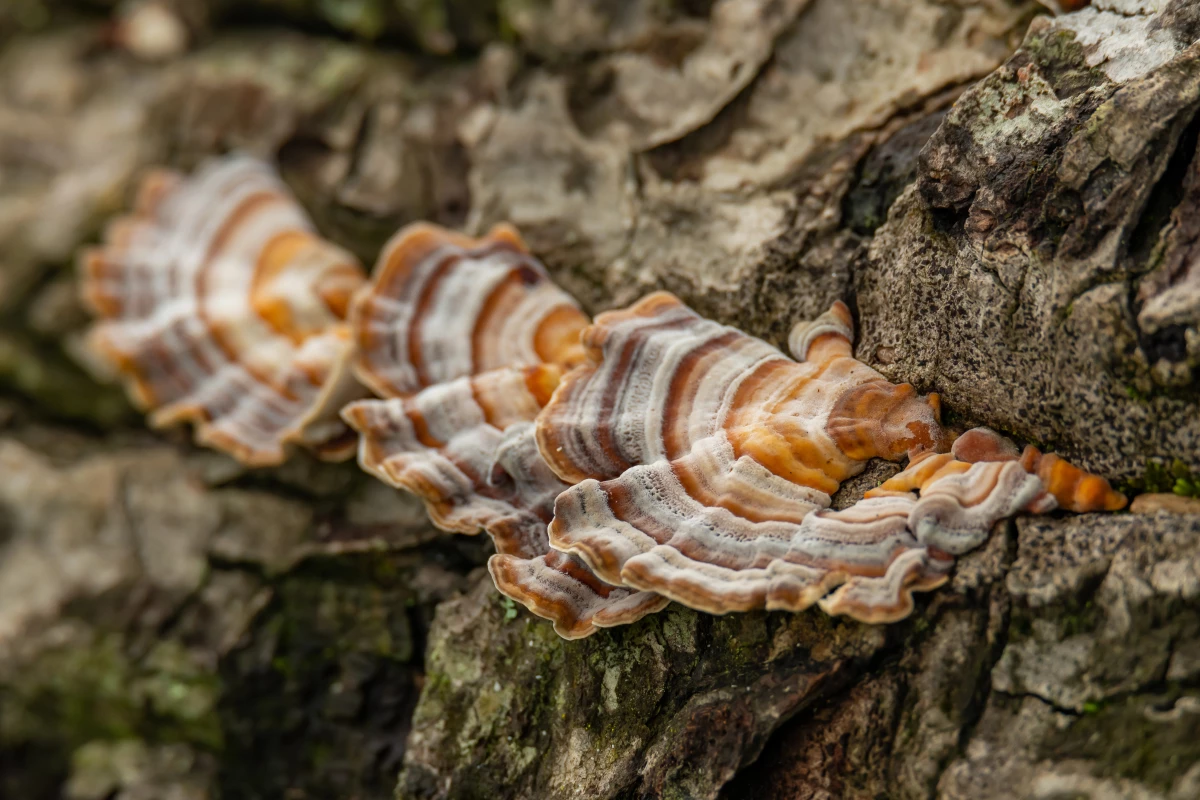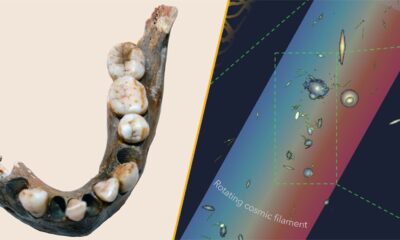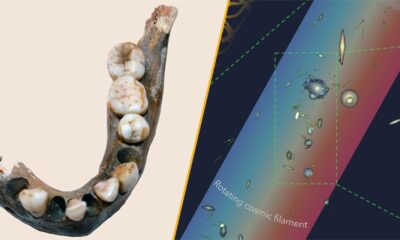Science
Turkey Tail Mushroom Coating Offers Sustainable Plastic Alternative

A new study from the University of Maine reveals that the edible turkey tail fungus, known scientifically as Trametes versicolor, combined with wood fibers can create a sustainable and waterproof coating. This innovative material could serve as a viable alternative to single-use plastic food wraps and synthetic coatings for paper cups. The research aims to produce an environmentally friendly solution that effectively resists water, oil, and grease while ensuring safety for food applications.
Researchers at the university explored the mycelium of the turkey tail mushroom, which comprises a dense network of root-like structures found in wood. These strands are notably waterproof. By integrating this mycelium with tiny cellulose fibers, known as nanofibrils, the team was able to create a surface that is resistant to oxygen, oil, and grease.
“Our hope is that by providing more ways to potentially reduce our reliance on single-use plastics, we can help lessen the waste that ends up in landfills and the ocean; nature offers elegant, sustainable solutions to help us get there,” said Assoc. Prof. Caitlin Howell, the corresponding author of the study.
Experimental Coating Process
The turkey tail mycelium and wood fiber mixture was applied in thin layers to various substrates, including two types of paper, denim, polyester felt, and birch wood veneer. After drying in an oven for one day, the coating was allowed to mature for three additional days in warm conditions. The result was a waterproof barrier about the thickness of standard paint. By the fourth day, the coating exhibited distinctive yellow, orange, or tan markings.
Subsequent experiments demonstrated the effectiveness of the coating. Water droplets placed on the treated surfaces formed small spheres, while those on untreated materials spread out or were absorbed. The fungal coating also proved effective against other liquids, including fuel n-heptane, toluene, and castor oil, indicating its potential as a barrier beyond just water.
Broader Implications for Mycelium Technology
The applications of mycelium are expanding beyond food packaging into the construction industry. Researchers are experimenting with mycelium-based products, including tiles made from oyster mushrooms and bamboo scraps. Developed by scientists at Nanyang Technological University in Singapore, these tiles feature a bumpy texture reminiscent of elephant skin and are designed to improve energy efficiency in buildings by maintaining cooler temperatures in hot months.
Another innovative mycelium product in development is mycocrete, a concrete alternative created from mycelium mixed with grains and other materials for added bulk. This project is ongoing at Newcastle University in the UK.
The findings from the University of Maine’s research were published in the journal Langmuir, showcasing a promising step forward in the pursuit of sustainable alternatives to conventional plastics. The ongoing exploration of mycelium technology highlights its potential to address environmental challenges across various sectors, from food packaging to construction.
-

 Technology5 months ago
Technology5 months agoDiscover the Top 10 Calorie Counting Apps of 2025
-

 Health3 months ago
Health3 months agoBella Hadid Shares Health Update After Treatment for Lyme Disease
-

 Health3 months ago
Health3 months agoErin Bates Shares Recovery Update Following Sepsis Complications
-

 Technology4 months ago
Technology4 months agoDiscover How to Reverse Image Search Using ChatGPT Effortlessly
-

 Technology1 month ago
Technology1 month agoDiscover 2025’s Top GPUs for Exceptional 4K Gaming Performance
-

 Technology3 months ago
Technology3 months agoElectric Moto Influencer Surronster Arrested in Tijuana
-

 Technology6 days ago
Technology6 days agoOpenAI to Implement Age Verification for ChatGPT by December 2025
-

 Technology5 months ago
Technology5 months agoMeta Initiates $60B AI Data Center Expansion, Starting in Ohio
-

 Technology5 months ago
Technology5 months agoRecovering a Suspended TikTok Account: A Step-by-Step Guide
-

 Health5 months ago
Health5 months agoTested: Rab Firewall Mountain Jacket Survives Harsh Conditions
-

 Health3 months ago
Health3 months agoAnalysts Project Stronger Growth for Apple’s iPhone 17 Lineup
-

 Lifestyle5 months ago
Lifestyle5 months agoBelton Family Reunites After Daughter Survives Hill Country Floods





















